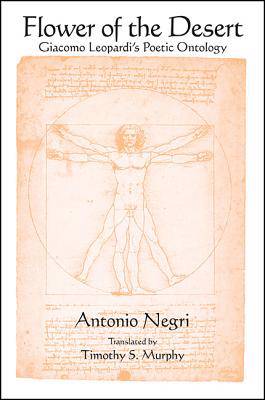
- Afhalen na 1 uur in een winkel met voorraad
- Gratis thuislevering in België vanaf € 30
- Ruim aanbod met 7 miljoen producten
- Afhalen na 1 uur in een winkel met voorraad
- Gratis thuislevering in België vanaf € 30
- Ruim aanbod met 7 miljoen producten
Omschrijving
A profound meditation on Leopardi's art and thought as well as a reframing and reassertion of Negri's own philosophical and political project of liberation.
Antonio Negri, one of Italy's most influential and controversial contemporary philosophers, offers in this book a radical new interpretation of the nineteenth-century Italian poet Giacomo Leopardi. For Negri, Leopardi is not the bitter, idealistic individualist of conventional literary history, but rather a profoundly materialist thinker who sees human solidarity as the only possible solution to the catastrophes of history and politics. Negri traces Leopardi's resistance to the transcendental idealism of Kant and Hegel, with its emphasis on reason's power to resolve real antagonisms into abstract syntheses, and his gradual development of a sophisticated poetic materialism focused on the constructive power of the imagination and its "true illusions." Like Nietzsche (who admired him), Leopardi provides an alternative to modernity within modernity, expressing a force of rupture and recomposition-a uniquely Italian one-that is as relevant now as it was in the nineteenth century, and which connects to the theory of Empire as the political constitution of the present that Negri has elaborated in collaboration with Michael Hardt.
Specificaties
Betrokkenen
- Auteur(s):
- Vertaler(s):
- Uitgeverij:
Inhoud
- Aantal bladzijden:
- 448
- Taal:
- Engels
- Reeks:
Eigenschappen
- Productcode (EAN):
- 9781438458472
- Verschijningsdatum:
- 1/11/2015
- Uitvoering:
- Hardcover
- Formaat:
- Genaaid
- Afmetingen:
- 157 mm x 239 mm
- Gewicht:
- 748 g

Alleen bij Standaard Boekhandel
Beoordelingen
We publiceren alleen reviews die voldoen aan de voorwaarden voor reviews. Bekijk onze voorwaarden voor reviews.











